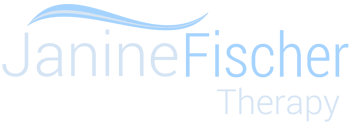As we shift into the next season –Fall; it is an needed time to pause and reflect. It is an important reminder that change can be beautiful and that it can create a significant impact! The colours, fresh morning air, and new flavours (welcomed back), can bring us a sense of hope. This time can also represent a point in time of returning to work, school, routine, and increase family expectations/gatherings. These items can be a positive focus, but also could be a trigger inducing reality depending on our circumstances and stories.
It is important to give yourself grace, time, and space to process all of these realities. We also need to provide others these same allowances (as we never know the full story of someone else’s life).
Challenge yourself to hold space for that.
Author Archives: gftadmin
Methods of Coping…
To feel well (and in control) we need to realize what behaviours set us up for success. What indicators can you see within yourself that highlight you are on a healthy path? What do you notice about your internal tone of voice when you are feeling well, and connected?
Then we need to self-reflect to determine what is needed in those moments we are not feeling well or connected. What is needed in order for us to manage and shift back into feeling well? What tone of voice do I hear internally during this period of time? What methods of coping have served me in the past? What do I need to force motivation with (rather than waiting for the motivation to kick-start me)?
Starting off with some self-reflection to see where our baseline is, our healthy, and our struggle.
Then we need to self-reflect to determine what is needed in those moments we are not feeling well or connected. What is needed in order for us to manage and shift back into feeling well? What tone of voice do I hear internally during this period of time? What methods of coping have served me in the past? What do I need to force motivation with (rather than waiting for the motivation to kick-start me)?
Starting off with some self-reflection to see where our baseline is, our healthy, and our struggle.
Pressures to be ‘Organized’ within our Society…
When it comes to most settings within our society a question is often presented on “How organized are you? /Or How do you remain organized?” These questions can be loaded if you do not find yourself to ‘fit’ the Canadian standard of organization and reality of working yourself to excessive means. Organization is hidden within productivity! But the two are not exclusive. Organization is marketed to us as a means to work smarter not necessarily harder. However, our population as a whole has an increase in distracted thinking. Therefore, we are needing ‘more support’ in order to perform at the level that society is measuring us too. If we could take a moment to step back, reassess the need of each task/pressure and reevaluate what is truly needed versus forced upon us by another group’s standard; we could be performing at new levels without the need of excessive productivity.
Adults within our society that think different (especially those with ADHD) that are found or labelled to be disorganized (as they are compared to societal pressures and predispositions of what organization is). As founded in Judith Kolberg research—individuals that think different turn away from organization techniques as a whole because the worry around perfectionism comes up and the idea of not starting at all becomes more attractive because then “I cannot fail”.
How to start performing at new levels without excessive productivity:
1. What is your personal definition of Organization?
2. What is your personal definition of Productivity?
3. What do you need to internally feel organized within your life (personal and professionally)?
4. Is there a negative narrative occurring for you internally? If so, who’s voice is that?
Adults within our society that think different (especially those with ADHD) that are found or labelled to be disorganized (as they are compared to societal pressures and predispositions of what organization is). As founded in Judith Kolberg research—individuals that think different turn away from organization techniques as a whole because the worry around perfectionism comes up and the idea of not starting at all becomes more attractive because then “I cannot fail”.
How to start performing at new levels without excessive productivity:
1. What is your personal definition of Organization?
2. What is your personal definition of Productivity?
3. What do you need to internally feel organized within your life (personal and professionally)?
4. Is there a negative narrative occurring for you internally? If so, who’s voice is that?
Understanding our Trauma Responses
“Traumatized people chronically feel unsafe inside their bodies: The past is alive in the form of gnawing interior discomfort. Their bodies are constantly bombarded by visceral warning signs, and, in an attempt to control these processes, they often become expert at ignoring their gut feelings and in numbing awareness of what is played out inside. They learn to hide from their selves.” (p.97)”
― Bessel A. van der Kolk, The Body Keeps the Score: Brain, Mind, and Body in the Healing of Trauma
Trauma responses show us many different realities. Often leading us to mistrust ourselves. One of the many processes within healing from trauma is leaning into trusting yourself again. Starting by listening to what your gut response is in different situations.
What is my gut (and body as a whole) telling me:
1. Am I feeling safe?
2. Do I trust my environment?
3. Do I feel okay with the people around me?
4. What am I needing in this moment?
5. Am I attempting to numb my emotional experience?
― Bessel A. van der Kolk, The Body Keeps the Score: Brain, Mind, and Body in the Healing of Trauma
Trauma responses show us many different realities. Often leading us to mistrust ourselves. One of the many processes within healing from trauma is leaning into trusting yourself again. Starting by listening to what your gut response is in different situations.
What is my gut (and body as a whole) telling me:
1. Am I feeling safe?
2. Do I trust my environment?
3. Do I feel okay with the people around me?
4. What am I needing in this moment?
5. Am I attempting to numb my emotional experience?
Holding Ourselves Accountable (with Compassion)
Within our current times, I feel it is important now more than ever to ensure we’re holding ourselves accountable to the realities of our current world. The challenges that can come within this are not to be dismissed or devalued, but highlighted to the importance of this work.
Some important questions to self-reflect upon:
1. Identify what your personal values are?
2. What do you stand for?
3. How do you see yourself?
4. What is important to you (professionally, personally, in terms of social justice, etc.)?
5. What am I working towards/wanting to accomplish?
“Do the best you can until you know better. Then when you know better, do better.”– Maya Angelou
It is great to note that as a whole, we are doing the best we can with what we have (Brene Brown). It is also important to acknowledge; that the reality is that we are evolving, adapting, and growing. So we need to hold ourselves accountable to that standard, but also ensuring we’re showing ourselves the compassion and kindness of this reality.
Some important questions to self-reflect upon:
1. Identify what your personal values are?
2. What do you stand for?
3. How do you see yourself?
4. What is important to you (professionally, personally, in terms of social justice, etc.)?
5. What am I working towards/wanting to accomplish?
“Do the best you can until you know better. Then when you know better, do better.”– Maya Angelou
It is great to note that as a whole, we are doing the best we can with what we have (Brene Brown). It is also important to acknowledge; that the reality is that we are evolving, adapting, and growing. So we need to hold ourselves accountable to that standard, but also ensuring we’re showing ourselves the compassion and kindness of this reality.
Resisting the Labels of Others
Recognizing the impacts of others perceptions of us is an important reality to name, but can be a debilitating reality to sit within. It is important to know that other’s labels are theirs; their understanding, judgement, and comfort. You do not need to accept that label. It is important to note: That this concept goes both ways. We do not have the right to label others, just as they do not have the right to label us. Regardless of rights, labelling occurs. The value of your identity is the important factor to consider and name for yourself.
We become free from the labels when we face them, reflect, and determine what identity we choose and move forward within that. Take a moment to pause, turn inward and see what that is for yourself.
Resources to read to dive into this concept further: Dr. Edith Eger: The Choice; and The Gift.
*Understanding the there are many factors within our world that add to these labels (stereotypes, discrimination, racism, hatred, and the list goes on!) These are further reflections that need to be considered/named as well.
We become free from the labels when we face them, reflect, and determine what identity we choose and move forward within that. Take a moment to pause, turn inward and see what that is for yourself.
Resources to read to dive into this concept further: Dr. Edith Eger: The Choice; and The Gift.
*Understanding the there are many factors within our world that add to these labels (stereotypes, discrimination, racism, hatred, and the list goes on!) These are further reflections that need to be considered/named as well.
Realities of Attempting to Please the World…
“When a woman finally learns that pleasing the world is impossible, she becomes free to learn how to please herself.” –Glennon Doyle
The pressures, stereotypes, stories told, and expectations placed upon woman from all angles; family, partners, work places, society, and the list can be never ending are the impossible. Finding ways to unlearn, activate our critical mind (trusting and listening to it more importantly), asking questions, and taking a step out of this impossible world. By doing this it allows for a lot of new opportunities, internal wants, and desires to be heard that often woman are unable to access for themselves.
To start that reflection ask yourself a few questions:
1. Why am I in the field of work I am? What led me to this path (who’s expectations am I fulfilling)?
2. What role do I play within my family system? Is this the role I’d choose? (Who’s needs are being fulfilled with me in this role)?
3. How am I seen by my support system around me? (What pressures am I absorbing from this)?
The pressures, stereotypes, stories told, and expectations placed upon woman from all angles; family, partners, work places, society, and the list can be never ending are the impossible. Finding ways to unlearn, activate our critical mind (trusting and listening to it more importantly), asking questions, and taking a step out of this impossible world. By doing this it allows for a lot of new opportunities, internal wants, and desires to be heard that often woman are unable to access for themselves.
To start that reflection ask yourself a few questions:
1. Why am I in the field of work I am? What led me to this path (who’s expectations am I fulfilling)?
2. What role do I play within my family system? Is this the role I’d choose? (Who’s needs are being fulfilled with me in this role)?
3. How am I seen by my support system around me? (What pressures am I absorbing from this)?
The State of Vulnerability
Brené Brown describes vulnerability as “uncertainty, risk, and emotional exposure. It’s that unstable feeling we get when we step out of our comfort zone or do something that forces us to loosen control.” Further, it is the state where we give up the need to know the result of the situation, have control over, and hold power over influencing the end result. Vulnerability is a required state for us to become connected, grow, and expand our abilities. It also is a truly challenging state of mind to hold ourselves within on an ongoing basis.
We have been conditioned within our society to look at individuals within a vulnerable state as weak, when the reality of vulnerability is truly a strength (and a high level ability). Reminding ourselves of this fact is key to our ongoing ability to put ourselves within a vulnerable state of mind. Holding our understanding as truth and accepting that.
We are faced with many realities on a daily basis and we have a choice in how we respond. Certain situations, or with some individuals it might not be a safe spot for us to become vulnerable, this is something we need to consider and take inventory for ourselves. These situations might also provide us the further insight, understanding of ourselves and the situation. By giving us some new perspectives.
Give yourself the ability to make choices (you know what is in your best interest), just trust in yourself.
We have been conditioned within our society to look at individuals within a vulnerable state as weak, when the reality of vulnerability is truly a strength (and a high level ability). Reminding ourselves of this fact is key to our ongoing ability to put ourselves within a vulnerable state of mind. Holding our understanding as truth and accepting that.
We are faced with many realities on a daily basis and we have a choice in how we respond. Certain situations, or with some individuals it might not be a safe spot for us to become vulnerable, this is something we need to consider and take inventory for ourselves. These situations might also provide us the further insight, understanding of ourselves and the situation. By giving us some new perspectives.
Give yourself the ability to make choices (you know what is in your best interest), just trust in yourself.
Burnout within Lockdown:
As humans we are wired and programmed for connection. We are driven to develop and maintain connections with other people, animals, and living things. Within are current state of the world: Ontario Lockdown (due to the global pandemic) we are requested to isolate and distance. This reality is leaving a lot of individuals feeling disconnected and ultimately leading us to feeling burnt-out. This can be a heavy weight we are left carrying.
Rather than remaining within this heavy reality of disconnection. We can shift our perspective to what is within our control and abilities.
How can we maintain meaningful connection within our current times?
1. Virtual communication (text, telephone call, video), while possibility sharing food
2. Socially distance walks
3. Socially distance camp fires
4. Game Night/Dance Party with a virtual twist
*Taking a reflection on all the ways we found connection in the past is seeing if we can put a twist on it to make it a safer option within our present times. Giving ourselves some grace to be able to ask for what we’re needing and being open minded to trying something within a different context.
Rather than remaining within this heavy reality of disconnection. We can shift our perspective to what is within our control and abilities.
How can we maintain meaningful connection within our current times?
1. Virtual communication (text, telephone call, video), while possibility sharing food
2. Socially distance walks
3. Socially distance camp fires
4. Game Night/Dance Party with a virtual twist
*Taking a reflection on all the ways we found connection in the past is seeing if we can put a twist on it to make it a safer option within our present times. Giving ourselves some grace to be able to ask for what we’re needing and being open minded to trying something within a different context.
Changes within this Holiday Season
Holidays within the best of times can be a stressful time for many individuals (with the potential of also being exciting and joyous). The following will influence how the holidays have been viewed by yourselves in the past: your family relationships, traditions, external and internal expectations, present day grief experiences, and personal boundaries within these elements. This year especially has several added elements that are beyond our control in terms of living within a global pandemic. Restrictions are needed to be imposed, and therefore traditions and past behaviours are being forced to change.
Change is not a simple transition. It is challenging, emotional, and heavy at points. But change is the only way through a growth experience. Therefore, looking into this holiday season what can you do to support yourself throughout this change?—
1. What new traditions can you start?
2. What old traditions needed to end regardless (that weren’t serving your needs any longer)?
3. What old traditions can be altered to work?
4. What boundaries do you need to put in place with others, or
5. What boundaries do you need to enforce with yourself?
From this experience you’re going to be able to self-evaluate further as to what you’re needing and what you’re needing closure from. Give yourself that permission this holiday season.
Change is not a simple transition. It is challenging, emotional, and heavy at points. But change is the only way through a growth experience. Therefore, looking into this holiday season what can you do to support yourself throughout this change?—
1. What new traditions can you start?
2. What old traditions needed to end regardless (that weren’t serving your needs any longer)?
3. What old traditions can be altered to work?
4. What boundaries do you need to put in place with others, or
5. What boundaries do you need to enforce with yourself?
From this experience you’re going to be able to self-evaluate further as to what you’re needing and what you’re needing closure from. Give yourself that permission this holiday season.







